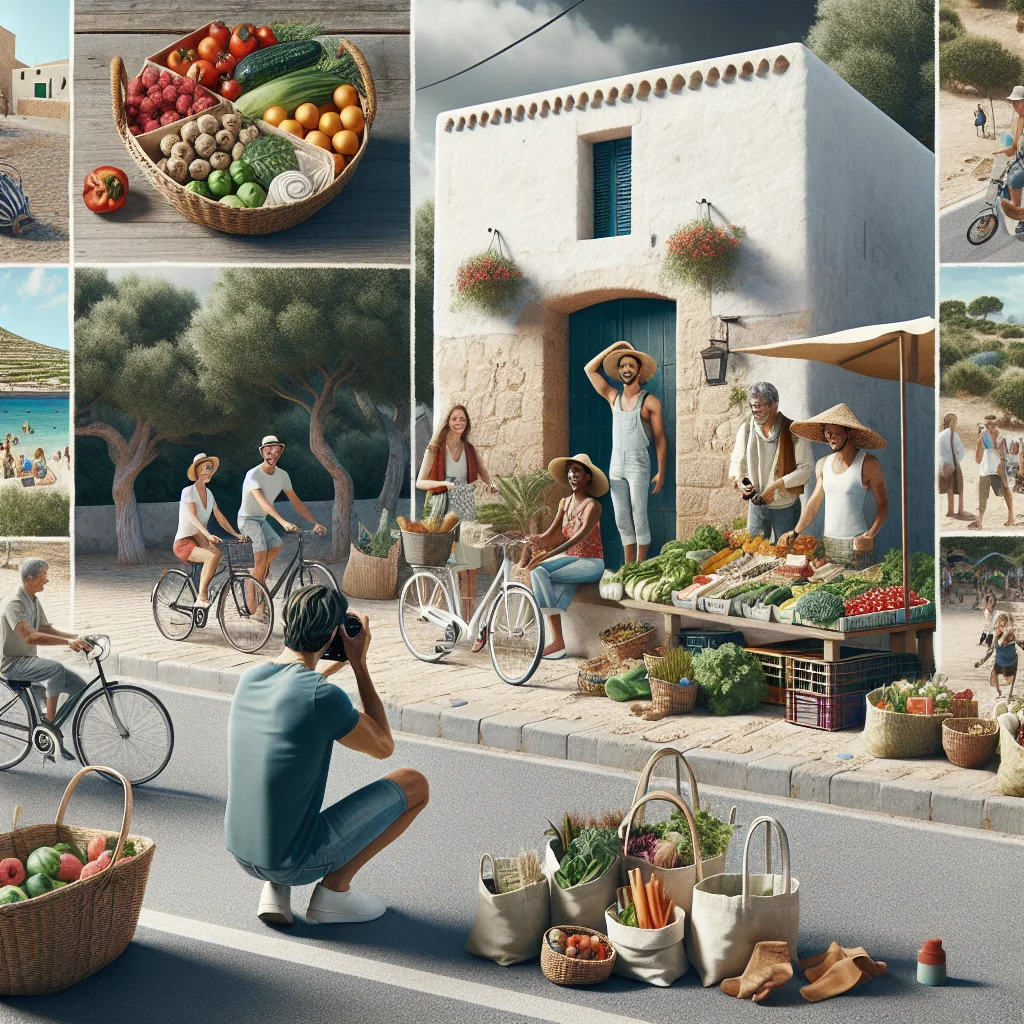Engaging with Formentera's Cultural Heritage Sustainably
May 16, 2025

Introduction
Formentera is not just a paradise known for its stunning beaches and crystal-clear waters; it also holds a wealth of cultural experiences waiting to be discovered. For eco-tourists eager to engage with the local heritage responsibly, the island offers sustainable ways to immerse oneself in its traditions, festivals, and culinary delights. This guide will explore how travelers can enjoy Formentera's cultural richness while minimizing their ecological footprint.
The Island's Cultural Tapestry
Formentera’s cultural history weaves a tapestry of influences, ranging from ancient civilizations to contemporary practices. The island has been inhabited since the Phoenician times and holds a variety of archaeological sites, including remnants of ancient farms and settlements. Understanding these roots allows travelers to gain a deeper appreciation of the island’s identity.
Engaging with local customs is an essential part of experiencing the island. For instance, the celebration of Sant Jaume, a traditional summer festival, showcases local music, dance, and culinary traditions. Attending such events allows visitors to connect with the community and understand the significance of these celebrations.
Participating in Local Festivals Responsibly
Festivals like Sant Jaume and the Formentera Jazz Festival highlight the island's contemporary culture while embracing its history. As part of responsible tourism, travelers can support locals by participating in these events, eating at local food stalls, and buying crafts made by artisans. By choosing to engage respectfully and sustainably, visitors contribute positively to the community and ensure the continuation of these traditions.
Sustainable Practices During Festivals
Travelers can further minimize their impact during festivals by:
- Choosing Public Transportation: Opt for buses or cycling to travel to and from festival sites, thereby reducing carbon emissions associated with private vehicle use.
- Using Reusable Items: Bring reusable water bottles, cutlery, and shopping bags to limit single-use plastics, which are a significant environmental concern in tourist-heavy areas.
- Supporting Local Vendors: Purchase food and souvenirs directly from local artisans and vendors to support the economy, encouraging a sustainable model of tourism.
Culinary Traditions: A Taste of Formentera
Food is an integral part of Formentera’s culture. The island boasts a rich gastronomic heritage characterized by fresh, locally sourced ingredients. Traditional dishes such as "pa amb oli" (bread with oil) showcase the island's emphasis on quality and simplicity. To savor authentic flavors while practicing sustainability, consider:
- Dine at Eco-Friendly Restaurants: Many local eateries prioritize organic, locally sourced ingredients. They offer a truly authentic taste of Formentera while minimizing the carbon footprint of food transport.
- Join Cooking Classes: Participate in cooking classes that highlight traditional recipes. These experiences not only teach culinary skills but also educate participants about sustainable cooking practices and ingredients native to Formentera.
Engaging with Local Artisans
Supporting local artisans is another effective way to experience Formentera's culture responsibly. The craftsmanship ranges from handmade jewelry to traditional textiles, reflecting both the island's history and its environmental values. Sustainable tourism encourages visitors to buy handmade products rather than mass-produced goods, ensuring that artisans receive fair compensation. By witnessing these artisans at work, you can gain insight into their methods and the cultural significance of their crafts.
Workshops and Experiences
Make the most of your trip by participating in workshops dedicated to traditional crafts like pottery or weaving. These hands-on experiences foster a deeper understanding of the island’s cultural heritage and promote responsible consumer behaviors by emphasizing the importance of supporting local production.
The Role of Nature in Formentera's Culture
Formentera's culture is intrinsically linked to its natural surroundings. This connection is celebrated in various forms, including local myths and stories passed down through generations. To truly appreciate this aspect:
- Engage in Ecological Tours: Opt for guided tours that focus on both the island's natural beauty and its cultural context. Such tours typically emphasize the importance of preservation and sustainable practices.
- Participate in Beach Clean-Up Days: Many local organizations host clean-up events, blending the love for nature with community engagement. Travelers can join these initiatives to help maintain the island's beauty while learning about environmental stewardship.
Conclusion
Formentera offers a unique blend of rich cultural heritage and natural beauty that can be appreciated through sustainable practices. By participating in local festivals, enjoying the island’s culinary delights, supporting local artisans, and respecting the environment, travelers can enjoy an immersive experience that honors the rich tapestry of traditions embedded in the island’s DNA. Engaging with Formentera's cultural heritage is not only about exploration but also about making meaningful connections and fostering a positive impact on the community.
Back